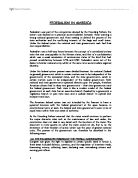AP REVIEW FOR FEDERALISM
- Block Grants – federal grant that could be used for a variety of purposes ususally with few accompanying restrictions
- Categorical grants – federal grant for a specific purpose often w/ accomplanying conditions and or requiring a local match
- Conditions of aid – federal rules that states must follow if they choose to receive the federal grants w/ which the rules are associated
- Cooperative Federalism –
- Devolution – an effort to shift responisbility for a wide range of domestic programs from Washington
- Dual Federalism – the doctrine that both states and natl’l govts. are supreme in their respective spheres
- Gibbons v. Ogden –
- Grants in aid – federal funds provided to states and localities
- Initialtive – a procedure that allows voters to place legislative measures directly on the ballot by getting a specified propportion of voters signatures on the petition
- Mandates – federal rules that states must follow whether they receive federal grants or not
- McCulloch v. Maryland – Supreme Court decision embodying the principle of implied powers on the nat’l govt.
- Nullification – a doctrine espoused by Calhoun that states could hold certain nat’l policies invalid w/in their boundaries
- Referendum – procedure that enables voters to reject a measure adopted by a legislature
- Revenue Sharing – a federal grant that requires not matching funds and provides freedom in how to spend it
- Unfounded Mandates –







